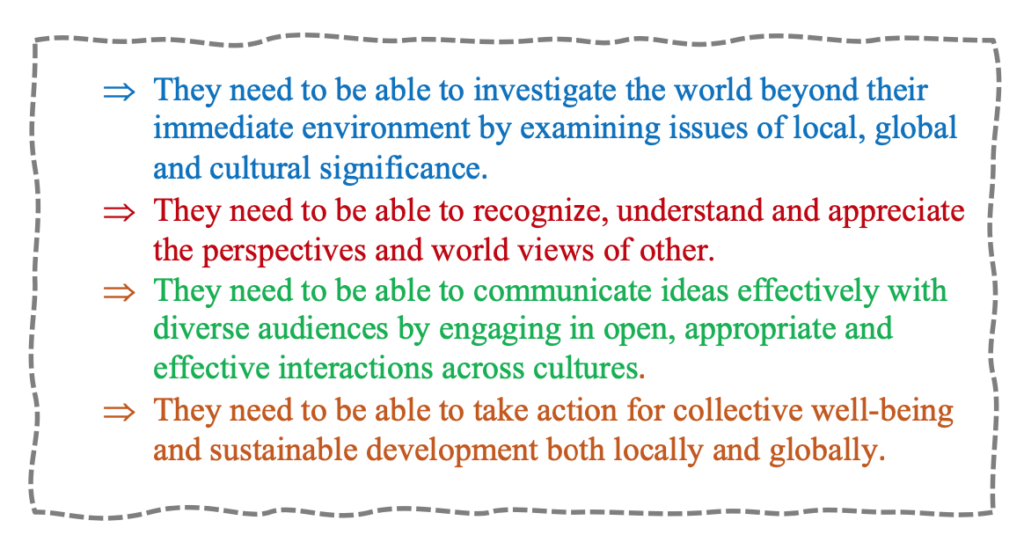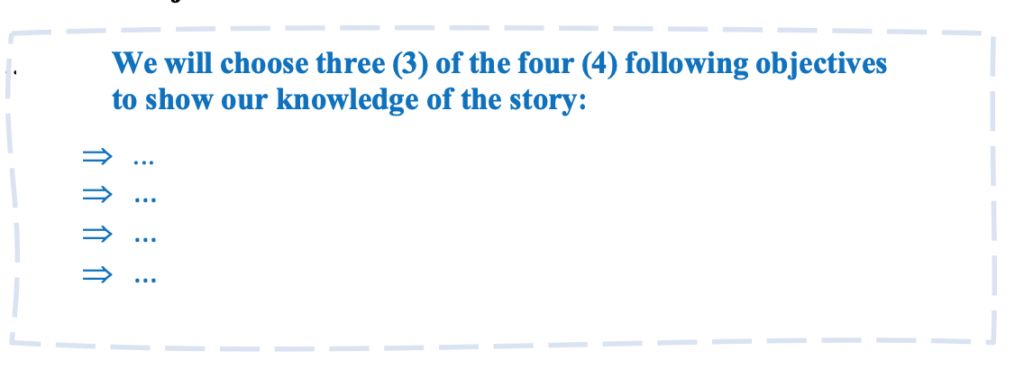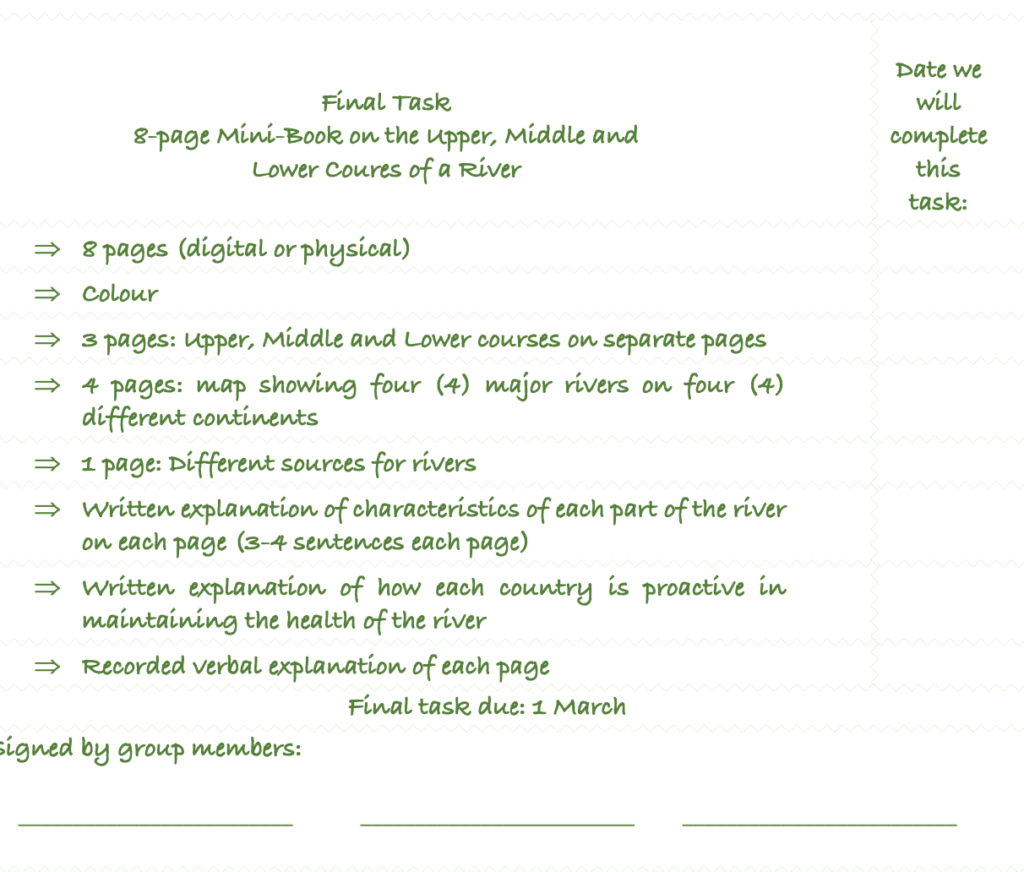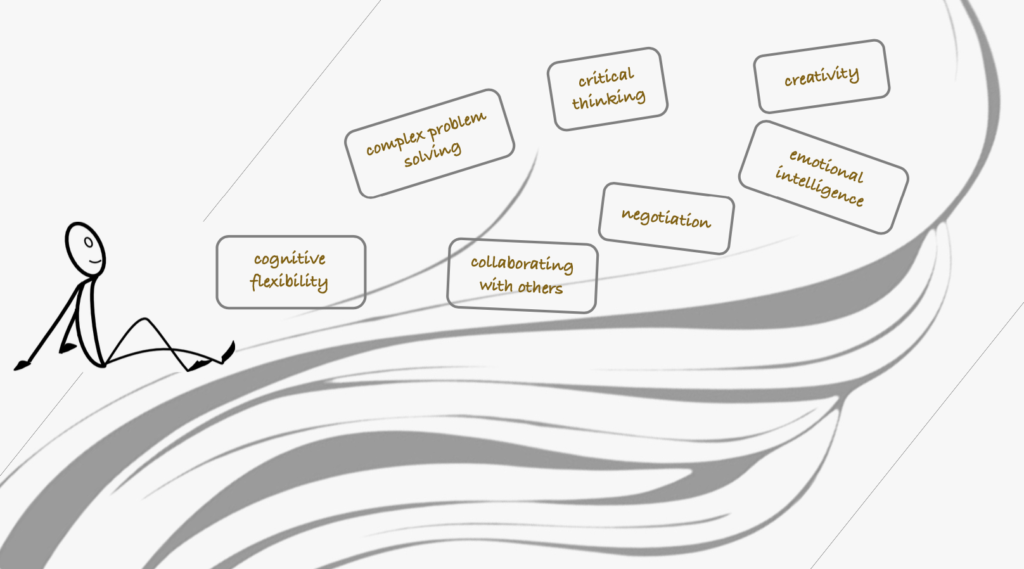
Download PDF of blog here.
Student Agency: What is it? Why should we focus on it?
Most Ministers of Education today, unfortunately, are so concerned with science, technology, engineering and mathematics, and having test scores, that they forget that, at the end of the day, if we don’t have people with good character, people who do the right thing, intellect itself will destroy the world, it will not save it.
Dr. Howard Gardner
Research Professor of Cognition and Education
Harvard University
Autumn, 2020
Student Agency: What is it? Why should we focus on it? and How can face-to-face and online classes expand it?
As usual, so many important questions, so let’s take one at a time!
What is student agency? This concept is so important to know – especially today. Our students are facing a future in which technology is already taking over major sectors of the professional world – what is often called the Fourth Industrial Revolution…the reality that multi-faceted technology has integrated itself into almost every aspect of our lives and has accelerated our dependency on it.
According to economic experts, over the past two decades, automation has increased threefold and over the next decade, tens of millions more jobs will be taken over by machines, especially those jobs designed for lower-skilled workers.
What does this have to do with your students? Perfect. That leads us to the second question from above: Why should you focus on student agency? Well, if machines can do lower-skill jobs better than our student can, then we have to help them develop qualities that make them more qualified than machines – that help these up-and-coming professionals be indispensable in the professional market. If not, they will be lost in the vast sea of unemployment, – and I don’t think you’re spending all this time planning the best lessons you can for them so that that happens to them, right?
But, how does this translate into what students need to develop? Well, according to the latest OECD survey, to be viable in today’s global economy, there are four key traits that students need to develop:

How in the world can we help them achieve these goals? No worries. That’s where student agency comes in: one of the most effective ways of developing skills that machines cannot replicate, is to promote student agency in our learning environments. As much as possible, we want them to become more proactive in their scholastic and personal lives so that they are more qualified than machines can ever be.
But, slow down…what is student agency?
Okay, the OECD defines student agency as: the capacity for a young person to set a goal, reflect, and act responsibly to effect change. When students are agents in their own learning – when they are active in deciding what and how they learn – they tend to show more motivation, and are more likely to be conscious of the learning process, plus, they become aware of what their responsibility is in realising progress.
How can this translate to our face-to-face or online classes. Right on time! That’s the third question from above: How can face-to-face and online classes expand student agency? This finally gets us to concrete activities.
For student agency to grow, learners need to be involved in the instruction and evaluation of the material required, but also co-constructors in what they learn. This doesn’t mean that they choose their own curriculum, but it does means that they are participants in choosing how and in what order they are going to learn what is in the curriculum – at first in small ways, and later, as they become accustomed to the responsibility, they have a growing co- authorship.
So, here are easy but four powerful ways to develop student agency in your lessons today:
- Co-create objectives: (See Let’s Blog Objectives for more details). When students have the opportunity to co-create content and language objectives for a lesson, a project and/or a unit, they become more integrated in the learning process and more active and invested in achieving these objectives. According to John Hattie’s effect sizes, this co-athorship has an enormous influence in raising the learning (0,82).
Example – you propose the following objectives, and then open up a class discussion:

During class discussion on these objectives, students make strong arguments stating that they do not need to do all of these objectives to show that they have assimilated the information from the story. So…
The new objectives state:

- Group-designed schedules: We present criteria for a final task. Students work with their group members to decide in what order they will do steps to complete the final task. (Negotiating skills are part of the four goals the OECD states above.)
They make a schedule showing the dates they will complete each part of the task, and all members sign at the bottom. (They are permitted to adjust the schedule, as long as they change the plan on the ‘official’ schedule and all sign again.)
Example:

- Projects: During the sudden switch to online lessons, teachers realised more than ever before that for students to engage in their learning, the material needs to be relevant and meaningful to them. Above all, they need to see connections to their lives. (See Let’s Blog Online Projects).
Projects – especially interdisciplinary and multi-cultural projects – mean students work collaboratively and so develop not only the goals the OECD suggests above, but also social agency. Social agency is about recognise.
sing the rights and responsibilities of those around them, the importance of community, and learning how to build relationships with people outside of their families.
- Choose learning-styles: Students have the option of the learning style they will use to make their knowledge visible at the end of a task. You give the options – any one of them being valid. Because the students can personalise their learning, you have given them the opportunity to strengthen their student agency.
Example:

So that’s a quick introduction to the importance of always beginning with content and language objectives. See you soon for the next blog!
In the meantime…
please tell me about the changes you see in your students as they become more involved and responsible in their learning!!

Scaffoldingmagic.com is your entryway into DYNAMIC bilingual learning methodologies, such as Phenomenon-Based Learning, CLIL, EMI, and ESL. You’ll find ways to implement critical thinking tools (DOK) to promote higher level thinking, the growth mindset, instill an ethic of excellence, deep reflection on learning, and all through multi-cultural, interdisciplinary activities. We have the keys to turning competences into action and to creating collective efficacy in your school so you move ahead as a unified, enthusiastic team.